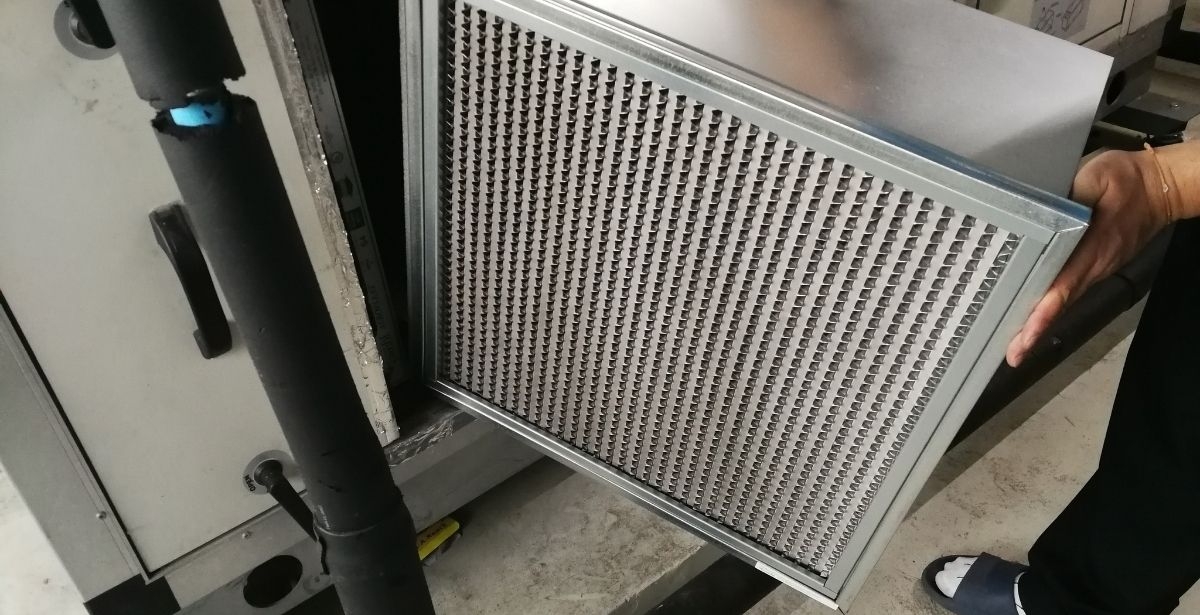
Should I Add an Air Purifier to My HVAC System?
In these days of the coronavirus pandemic, there are more reasons than ever to add an air purifier to your heating, ventilation and air conditioning (HVAC) system. While they are essential for public buildings, air purifiers are also important for household systems—especially with so many people working from home now.
HVAC Air Purifiers Remove Indoor Air Pollution
The Environmental Protection Agency reports that indoor air pollution is a top five health risk. Concentrations of some indoor pollutants can be 2 to 5 times higher than typical outdoor concentrations and the average American spends 90% of their time indoors. More bad news? Indoor pollutants have increased in recent decades because our energy efficient buildings prevent outside air from coming in. Great for your energy bill. Not so great if you want a breath of fresh air. There has also been an increased use of indoor pesticides, household cleaners, and personal care products, none of which you should be breathing in on a regular basis.
An air purifier system can trap bacteria and viruses, and also allergens like pet dander, dust mites, and volatile organic compounds (VOCs) such as benzene, ethylene glycol and formaldehyde. It can even neutralize smoke from a fireplace or tobacco products.
Who Needs an Air Purifier?
An air purifier is a good idea for any home, but if you or someone in your family has any of these conditions, installing an air purifier is especially important:
- Respiratory problems
- Allergies to dust, pet dander, pollen, etc.
- Asthma
- A smoking addiction
Types of Air Purifiers for your HVAC System
Installed in the ductwork of your home’s heating or cooling system, air purifiers will more effectively trap and eliminate indoor air pollutants than the simple pleated air filter that you may have now. Today’s purifiers use high efficiency mechanical filters, ultraviolet light, or electrostatic force to rid the air of pollutants and pathogens. Below are some different types of HVAC air filtration and purifying systems. You will want to consult a professional HVAC technician to help choose the one that is right for your home:
- HEPA: These filters utilize High Energy Particulate Air Filters (HEPA) that can trap more than 99% of airborne particles. However, not every system is compatible with a HEPA filter, so you may have to consider other types.
- Ultraviolet: Ultraviolet technology is often used along with a HEPA air purifier. Using rays of ultraviolet light, this air purifier can kill tiny microorganisms, such as bacteria and other pathogens.
- Carbon Activated Filters: If your main goal is to remove VOCs, smoke and other odors, this type of filter contains absorbent pores to trap contaminants.
- Electrostatic Air Purifiers: This type of purifier cleans the air by using static electricity. An electrostatic charge is generated by air flowing through a network of static-absorbing fibers, and this static charge traps airborne particles in the filter.
- Ionizing Air Purifiers: An ionizing air purifier produces charged particles that capture pollutants in the air. Groups of tiny particles stick together and become too heavy to remain airborne, or they are captured by the filtration system.
For any type of air purifier, ongoing maintenance is the key to their effectiveness. Disposable filters need to be replaced when they are full of debris, and those that are reusable should be hosed down at least once every six months.
Are you interested in learning more about HVAC systems and how to install and repair them? At Porter and Chester Institute, you can receive hands-on training in Connecticut and Massachusetts to become a skilled HVACR technician in as little as one year. Want to find out more? Fill out the form or give us a call at 800-870-6789.






